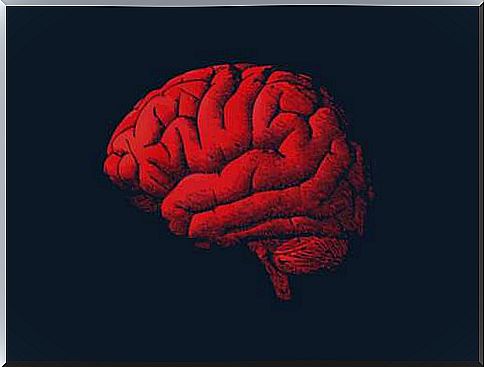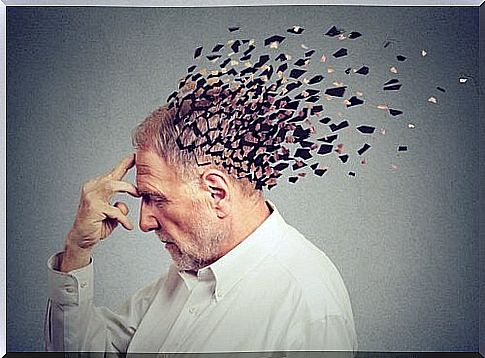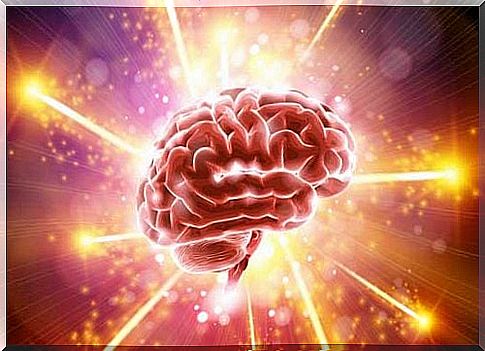The Brain Also Ages, But Why?

The brain also ages, just like any other organ or system in your body. However, there are people on whom the passage of time seems to affect more than others. And we’re not just talking about physical changes. In some people, their skills also change with age. But why does this actually happen? An even more important question, what can you do about it? Are some people unfortunately just a little more sensitive to the effects of aging? Are there tools to slow down brain aging?
The mysterious answer to why the brain ages can be found in certain genes. A group of researchers from the Babraham Institute in Cambridge (UK) and the Sapienza University of Rome (Italy) found the answers buried in the genetic inner workings of the brain. These genes influence the complex mechanism of age-related cognitive decline.
We already know a lot about what happens as the brain ages. For example, we know that neurons deteriorate and die, only to be replaced by new ones. One type of stem cells, the neural stem cells (NSC) to be specific, facilitate this process. These are cells of the nervous system. They can regenerate and make parent cells.
However, over time, these cells become less functional. This means that the brain itself starts to function less and less well. But what makes these cells older? Which molecular changes are exactly responsible for their decline? These are questions that researchers were fortunate to be able to answer.
What happens as the brain ages?
Before we look at why the brain ages, let’s talk about what the brain is made of. The aging of the brain is inevitable to some extent. However, it is not uniform. In fact, it actually affects all brains differently. Preventing the brain from aging, or at least slowing this process down, would be the best option to achieve eternal youth.

The human brain contains approximately 100,000 million neurons. These are connected by trillions of synapses. Over the course of your life , your brain changes more than any other part of the body. From the time the brain begins to develop during the third week of pregnancy to old age, its complex structure and functions also change.
During the first years of life, a child’s brain creates more than a million new neural connections per second. Brain size quadruples during preschool years. When a child is about six years old, the brain reaches about 90% of its full adult size.
The frontal lobes, the brain regions responsible for things like planning, operational memory and impulse control, are among the brain regions that mature last. In fact, they may not fully develop until age 35.
However, once they reach that point, you start to age. As you get older, your bodily systems gradually begin to deteriorate. And the brain is no exception. As such, normal aging causes certain changes in memory.
Effects of aging on the brain
Normal aging generally has these effects on memory:
- Difficulty learning new things: It may take longer to remember new information.
- Multitasking can get difficult: Slow processing can make it difficult to process and schedule parallel tasks.
- The remembering names and numbers difficult: the strategic memory helps in remembering names and numbers starts to deteriorate from twenty to you.
- It becomes more difficult to remember appointments.
Some studies indicate that a third of older adults have difficulty with declarative memory (they are unable to recall memories of facts or events). Other studies indicate that one-fifth of people over 70 and 20-year-olds sometimes take cognitive tests.
The common changes that occur in brains that age are:
- brain mass. The frontal lobe and the hippocampus. These parts of the brain are involved in higher brain function and the codification of new memories. These changes start around age 60 or 70 years old.
- Cortical Density. The external surface of the groove becomes thinner due to the reduction of synaptic connections. Fewer connections can mean slower cognitive processing.
- White matter. White matter consists of myelinated nerve fibers that bundle together and transmit nerve signals between brain cells. Scientists believe that myelin decreases with age. As a result, it slows down processing power and affects cognitive function.
- Neurotransmitter systems. Researchers suggest that as we age, the brain produces fewer chemical messengers. This reduction in dopamine, acetylcholine, serotonin, and norepinephrine may play a role in memory loss. It may also contribute to an increased risk of depression.
The role of genes in the aging process of the brain
Now we have some idea of what happens as the brain ages. So let’s go back to the study we mentioned at the beginning of this article to see exactly what role genes play in the process. According to researchers, the DBX2 gene could explain brain aging.
Scientists compared the genetic changes in stem/progenitor cells (NSC is short for neural stem cells) from 18-month-old rats with those of three-month-old rats. They identified more than 250 genes that changed the rats’ behavior over time. This means that these genes are probably responsible for the impaired functioning of the indicated cells.
Once they identified these 250 genes, the scientists noted that an increase in the DBX2 gene appeared to alter the old NSCs. They performed in vivo and in vitro tests. These tests showed that an increase in this gene in young NSCs made them behave like old stem cells. The increase in DBX2 activity prevented the NSCs from growing or proliferating like the young cells.

In addition, they looked at the oldest NSCs. There they identified changes in the epigenetic markers that could explain why stem cells deteriorate over time. If we think of our DNA as an alphabet, the epigenetic markers are like accents and punctuation marks. They tell the cells whether and how to read the genes. During this study, scientists discovered how these markers placed themselves on the genome in different ways to ‘tell’ the NSCs to grow more slowly.
Finally…
This study showed that these changes may contribute to the brain’s aging process. They do this by slowing down the brain’s renewal process. Researchers hope that these findings will one day revolutionize the aging process. By understanding the brain’s aging process, scientists hope we can at least find ways to detect a decline in neural stem cells.









